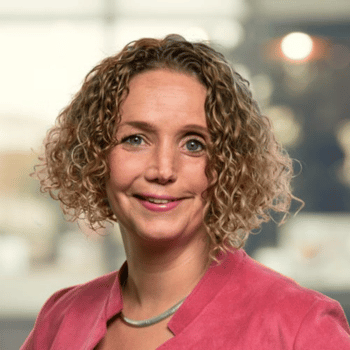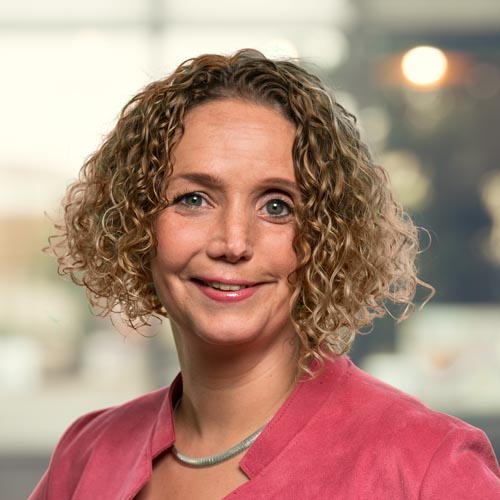
Time setters: accelerating drug development using organs in a machine
At TNO, we make a mark on our time. In this series, you’ll meet the TNO employees behind the innovation – the time setters. What do they do exactly and what impact does their work have on society? In this episode, we talk to time setter Evita van de Steeg, senior scientist in preclinical pharmacology, about how she can use an organ machine to predict how a drug will react in a body.
Organs in a machine – how does that work?
'Organ perfusion is a technique to keep organs viable outside the body with the help of a machine. For this purpose, we use a heart-lung machine with a pig’s liver. The tubing and machine mimic the functions of the heart and lungs, allowing the organ to function as it would be inside a body. Once we’ve added a medication, we measure how the organ deals with it and how it responds to the drug. An innovative method for testing drugs.'

'We use offal, in this case the liver of a pig, because it’s highly similar in structure and function to a human liver.'
How does this benefit us?
'During drug development, it’s crucial to obtain very reliable information about the behaviour of the drug in humans before it’s tested in humans in a clinical trial. We use offal, for example the liver of a pig, because it highly resembles the human liver in function and structure. A liver produces bile, where waste products from drugs can be excreted. The uniqueness of this model is that samples can be taken everywhere to determine how much of the drug is broken down and how fast.'
'Thanks to this method, we obtain very reliable information about the behaviour of drugs in humans. In this way, we ensure that medicines become available to patients more quickly.'
Drugs developed 2 years faster
With this technology, we’ll help accelerate the drug development process by two years this decade.
How did this idea arise?
'We were already collaborating with UMC Groningen. They wanted to show us the machine developed for transplantation research. On the way back from the lab, the idea immediately came up of using this for pharmacological application. The machine is made by a Dutch company. We procured it and, together with pharmaceutical parties, we further validated the application in a public-private partnership.'

'At TNO, we use all our knowledge and expertise internally as much as possible, including AI and data. That’s how everything comes together.'
Why do you work with something like organs on a daily basis?
'Every day I ask myself: how can we develop, accelerate, and improve the drug development process? What I like about it, is that together with universities, but in particular in applied work with companies and other organisations in the sector, we’re building something that benefits both society and patients. We’re working in a very applied fashion.'
'At TNO, we try to mimic in the lab the main functions of crucial organs in the human body, such as those of a kidney, liver, or intestine. To do that in the best way possible, we use various techniques. Besides organ perfusion, we’re also working on organ-on-a-chip , for example. There, we mimic organ function on a very small scale by using stem cell technology, among other things.'
'The methods currently still coexist, but eventually we’ll no longer need whole organs for research. The methods fuel each other. We also use all our knowledge and expertise internally as much as possible, including AI and data. That’s how everything comes together.'
What is your dream?
'My dream is to develop drugs faster with as little animal testing as possible. And also that together with partners, we can make a difference, so that patients will benefit.'
Become a time setter at TNO
Would you like to work on innovations that you can really use to create the future? If so, become a time setter like all TNO employees and make your mark on our time.
